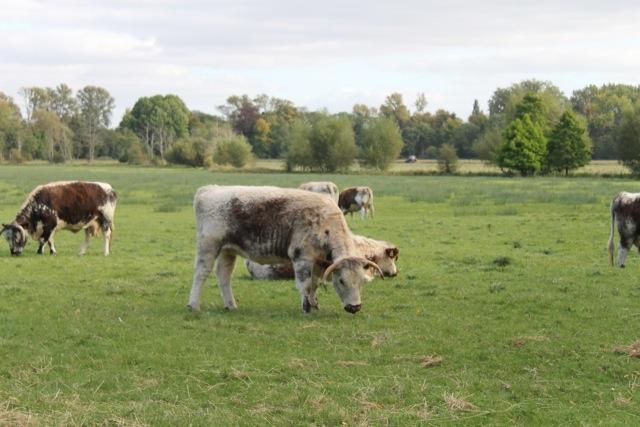
Photo by Kristen Tomkowid
“We never meant for it to get as big as it has gotten,” Sandford said. “About fifteen minutes before the starting bell, we had a line of 40 people and it never stopped.”
The Cornell Cooperative Extension noted this growing demand for local meat and started working on a project that will soon open its doors in downtown Ithaca and Corning: a meat locker that will allow residents who pay a small monthly fee, to store their local bulk-meat purchases.
This 10 by 14 foot communal walk-in freezer, 80% of which was funded by a USDA grant for 80,000 dollars, will be installed before the holidays under the old Ithaca Journal Building downtown. Consumers looking to buy local meat can reserve a spot in the locker with the Cornell Cooperative Extension for three to five dollars a month, depending on the desired bin size. Sandford sees the meat locker project as a way to help the local economy and food accessibility.
“I think agribusiness has a place in the world, but I also think there’s a place for communities to be fed by the people who live in them,” she said. “The meat locker project is a way to make local meat more accessible to our community. I just want people to have access to local meat.”
[swfobject]2387[/swfobject]
The meat locker will encourage the purchase of local meat because it gives consumers, who don’t often have money or space for a large freezer, a convenient place to store it, Susannah Spero, project coordinator for The Meat Locker Project, said.
“It’s pretty rare that you’ll find a food project that makes food more affordable for consumers but also more profitable for farmers,” she said. “Bulk meat is cheaper by the pound because you’re getting the expensive cuts of meat and the cheap cuts of meat all at the same price. And for the farmer, it’s much more profitable to sell like that because it reduces a lot of their inventory management and labor costs.”
Spero said the communal aspect of the meat locker makes it a one-of-a-kind project within New York State.
In Romulus, NY, Rick Whitmore, director of Finger Lakes Meat Processing, provides a locker for the local Amish community’s food storage. Although Whitmore hasn’t heard of a project like the Cornell Cooperative Extension’s, he believes a desire for convenience, especially among young people, will prevent them from buying local meat, traveling to the freezer, and finishing their entire purchase.
“I’d be surprised if it works,” he said. “It’s like going to the gym; you’re excited for the first three months, then it wears off and after while you realize it’s a pain. It might be a novelty and people might use it at first, but it will die out quickly.”
However, the findings from Cornell Cooperative Extensions’ studies showed a desire for local meat and a need for heightened communication between farmers and consumers. These findings led to the Meat Locker Project and to the creation of meatsuite.com, an online regional directory of regional farmers, which helps consumers find the type of meat they want from local farms. Both aspects are bringing consumers and local farmers together in ways reminiscent of times before the Green Revolution. Ithaca’s ability to make an old idea relevant and unique again is just an example of the community’s forward thinking, Spero said.
“Before the 1950s when people started to purchase individual home freezer units, communities would have these giant meat lockers, it’s a pretty old idea,” she said. “So really the Finger Lakes Meat Project [out of Cornell Cooperative Extension] just took this old idea and tried to make a way for it to be relevant again.”